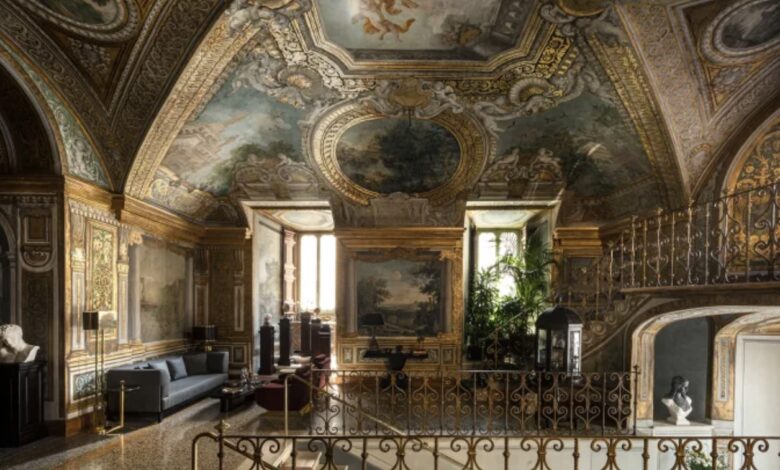
It’s an Italian home most can only dream of spending the night in.
Featuring multiple suites, all filled with artistic masterpieces, Rome’s 17th-century Palazzo Vilòn is sheer luxury. Spread across 1,100 square meters on multiple floors, it comes with a private gym, spa, cinema, 24-hour butler and chefs.
And now, Palazzo Vilòn can be all yours for 25,000 euros ($27,107) per night if you opt for the “buy-out” offer.
This dreamy Baroque palace isn’t your usual luxury hotel. Palazzo Vilòn offers a rare chance to travel back to a time when noble families ruled the Eternal City. You’re not just paying for a place to stay, but rather the centuries of history and art that’s reflected in the architecture and decor.
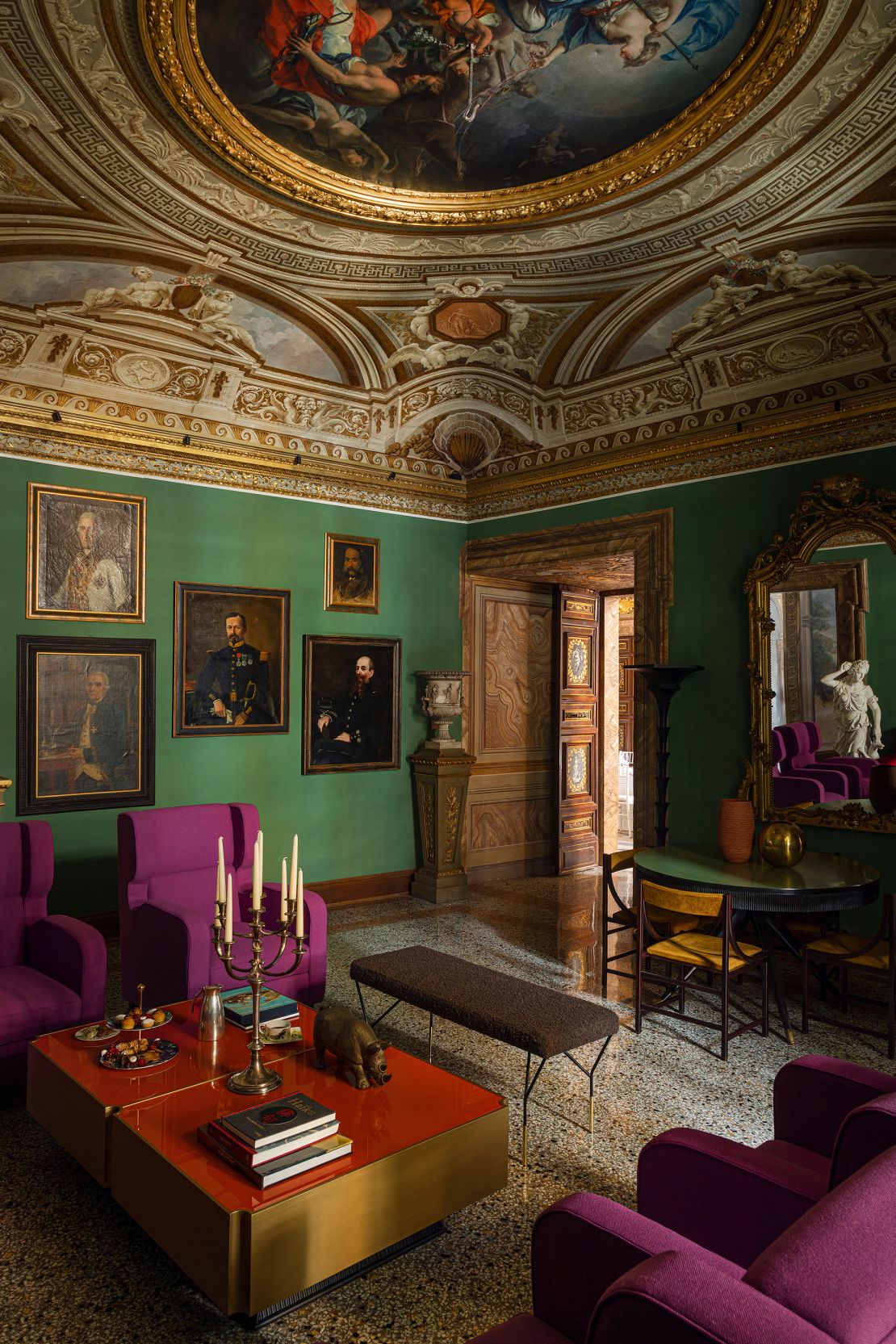
Overlooking the Tiber River, close to the Spanish steps in the Campo Marzio area and just a few minutes’ walk from Rome’s must-see landmarks, the palace was for centuries the private residence of the Borghese family, one of the most powerful and influential dynasties of 17th-century Europe.
Today, Palazzo Vilòn is believed to be Italy’s most expensive historical retreat. Services are tailor-made and all extras make the final price even higher.
What’s included in the basic fee? Just breakfast. If you want a private dinner with a gourmet tasting menu cooked inside the huge, shiny kitchen of the palazzo, it’s an extra 1,000 euros per person and includes top wines.
The heirs of the original Borghese family – a millenary ancestry that includes popes and princes – still inhabit the attached palace. And even though individual rooms can be booked, staff tell CNN most prefer to have the whole place to themselves.
“We opened this summer, and so far we’ve had foreign, mostly American clients, both young and senior couples and families with kids, who pick the buy-out option, exclusively booking it for a few days even though there’s space for 12 people,” says Palazzo Vilòn deputy director Samuele Florio.
For privacy reasons, he says he cannot share any client details, but stresses that not many have had the chance to experience this ‘secret’ heavenly palace yet.
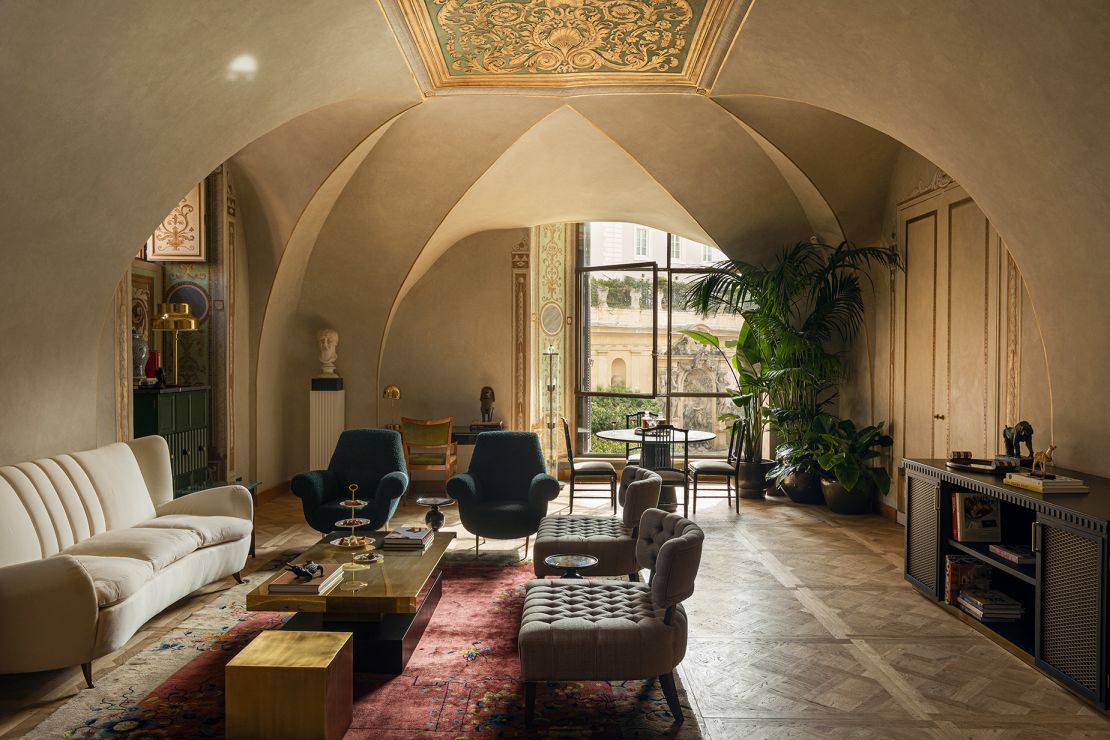
“Prices may vary according to demand and period, and services requested also include a car wash and guided tours to the neighborhood’s fresh produce market where guests pick the veggies, meat, bread to bring back to the palazzo, where they prepare their own meals or follow cuisine lessons,” says Florio. “Everything is extremely customized.”
Indeed, the deputy director says luxury doesn’t always mean fancy when it comes to food. Many clients are more interested in discovering the small shops where Romans buy their daily ingredients, and then experiencing what it means to cook and eat as a local inside the palazzo’s modern kitchen, which is equipped with ultra-high-tech steel equipment similar to that of the city’s Michelin-starred restaurants.
Candlelit dinners are served in the Mirrors Hall, which features a long table fit for Renaissance-style banquets. The hall is decorated with bas-reliefs, golden stuccoes and original Flemish mirrors made during the Renaissance. Florio’s team takes care of the menu and prepares iconic Italian dishes, all prepared and served by a dedicated team of waiters, sommeliers and cooks.
Florio’s team also offers guided tours across Rome and the whole of Italy, but those are more ‘standard’ services guests would find in any high-end hotel, he says.
‘It’s always been alive’
With a private garden boasting great views of Rome, the palazzo has been finely re-designed and furnished with a mix of modern and antique pieces.
Because it’s classified as a historical residence, no structural changes were made to the original architecture to adhere to restrictions imposed by state art authorities.
.
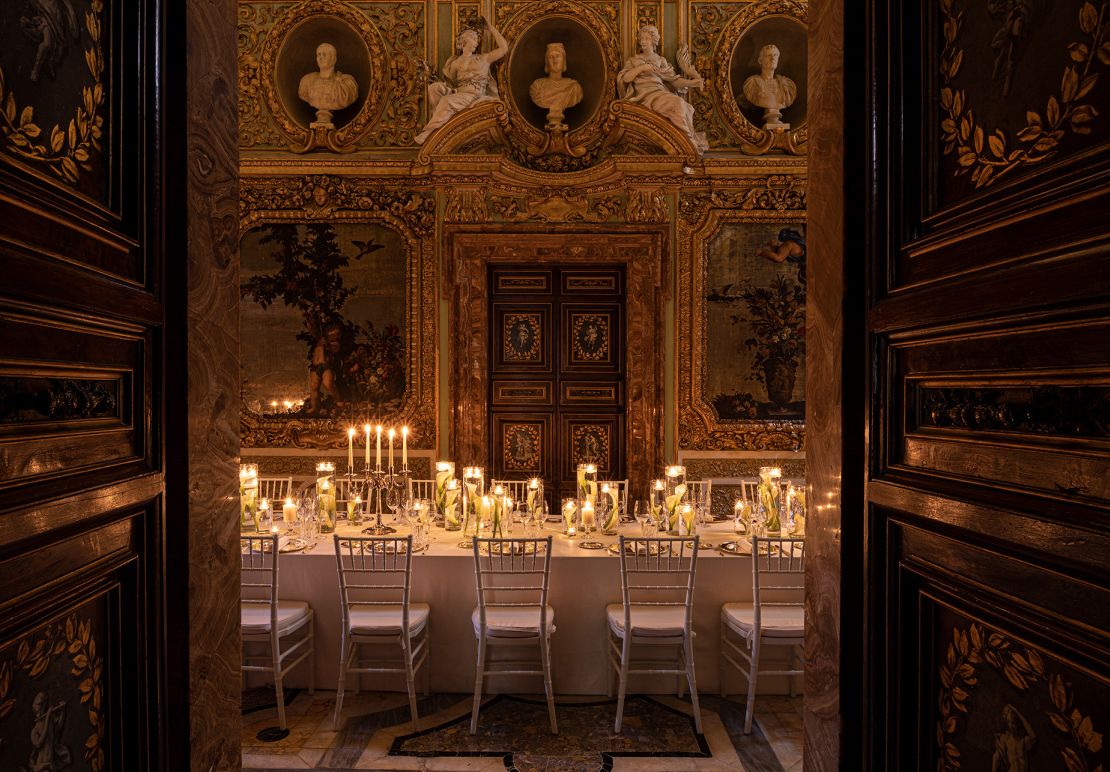
Managed by the adjacent Hotel Vilòn, it has only four stunning suites. Among the highlights is the Chapel Suite, which sits inside an actual Baroque chapel with a frescoed dome ceiling overlooking a king-size canopy bed.
Richly frescoed walls and roofs, trompe l’oeil paintings with rural and mythological scenes, carpets, fine stuccoes and rare and precious rainbow-colored marbles decorate the entire palace. Shiny golden enamel is everywhere.
Sunset drinks are served on the loggia overlooking the Tiber River, while morning espresso can be savored in the private garden, where aristocracy in the past killed time gossiping and flirting.
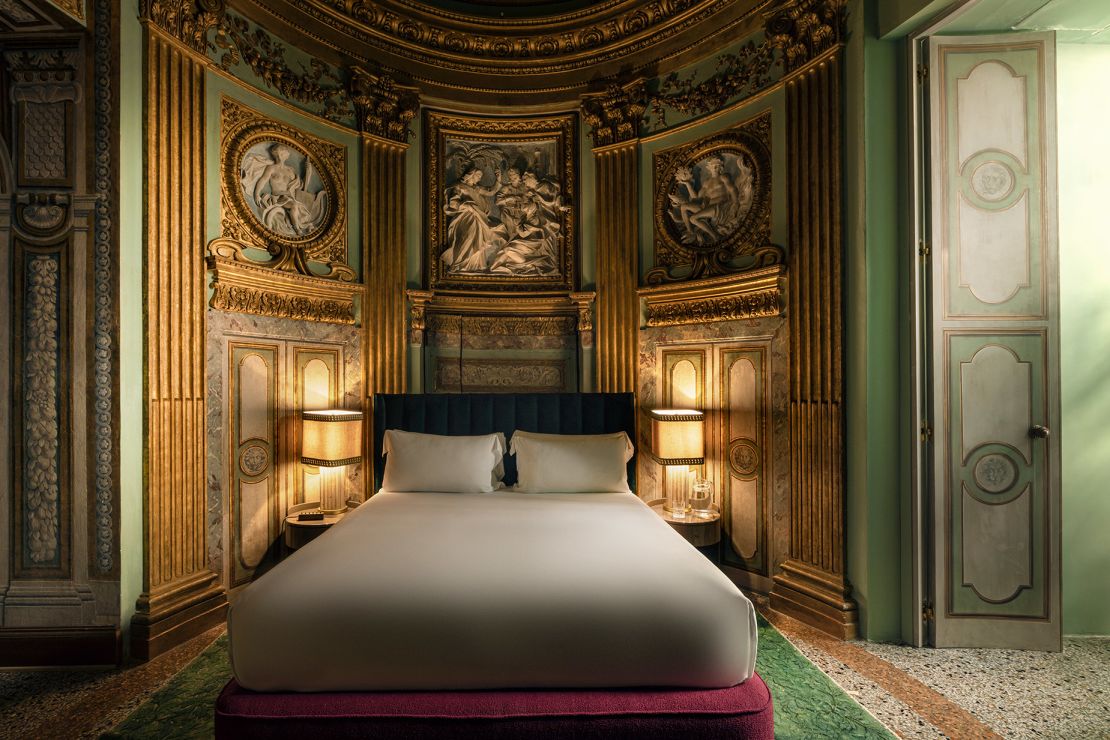
As for other amenities, guests can get pampered inside a 120-square-meter wellness space that’s accessible 24 hours a day and is equipped with a sumptuous pool, a sauna, a Turkish bath and a jacuzzi. Guests can enjoy massages and beauty treatments at the onsite spa.
The palazzo also comes with the ultimate luxury in Rome’s historical center – private parking. Guests who travel elsewhere in Italy won’t have to spend hours going around in circles to find one of the neighborhood’s rare free spots, though there are also private chauffeurs available at the hotel for an additional cost.
Despite all the grandeur, Florio stresses that Palazzo Vilòn is not a museum brought back to life. It has always been a private residence, and is now simply opening its doors to guests.
“The last person to live here up until a few years ago was a popular Italian film producer,” says Florio.
“The state of preservation of the palazzo is perfect because it has never fallen into oblivion or been neglected. It’s always been alive.”




